Jimmy Webb - Interview
by Lisa Torem
published: 20 / 10 / 2009
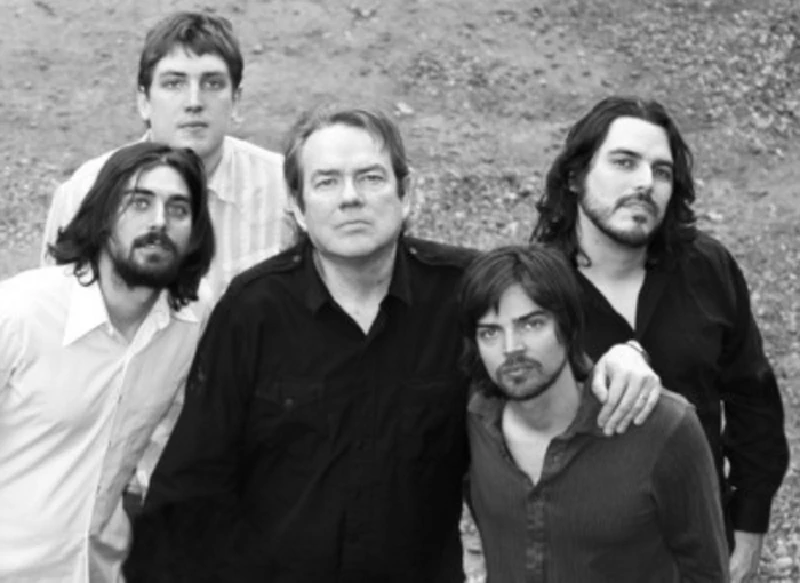
intro
American songwriter Jimmy Webb has written songs such as 'Galveston', 'By The Time I Get to Phoenix', 'Wichita Lineman' and 'MacArthur Park'. He speaks to Lisa Torem about his long musical career and 'Cottonwood Farm'. the album he has recorded with his sons, the Webb Brothers
By the time singer, guitarist and arranger Jimmy Webb got to California in 1964 he was already songwriting. Before that time, he lived in Oklahoma, growing up in a musical family – his father, a Baptist minister strumming guitar, his mother playing the accordion. He worked at recording studios and at Jobete, the publishing branch of iconic Motown fame. In 1965 Jobete published one of Webb’s songs entitled ‘Honey Come Back.’ It was from this juncture that his future livelihood would crystalize. Recording executive and vocalist Johnny Rivers recorded the Webb tune ‘By The Time I Get to Phoenix’ (1967, Capitol) but didn’t realize major success with the recording. ‘Phoenix’ was a moving song about a restless man who chronicles what his lover left behind is experiencing as she discovers he’s gone. Webb’s penchant for creating fully-fleshed out characters with conflicting emotions attracted numerous artists. Rivers suggested that a vocal ensemble known for stellar harmonies, the Fifth Dimension, might be a better fit for Webb’s style of work. Later in 1967 ‘Up, Up and Away’ garnered a hit for the Fifth Dimension. Country singer Glen Campbell also covered ‘Phoenix’ that same year. Subsequently, Webb set up his own jingles company and provided music for major American conglomerates such as Chevrolet, Doritos and Hamm’s beer. Additionally, Webb penned two entire albums devoted to the film actor Richard Harris, ‘A Tramp Shining’ and ‘The Yard Went on Forever’, both of which were released in 1968. Harris recorded also that year Webb’s ‘MacArthur Park’ bringing it to number 2. Country artist Waylon Jennings was awarded a Grammy award for singing ‘MacArthur Park’ in 1969. Disco-singer Donna Summer reworked this seven-minute melodramatic classic into a dance recording in 1978 which heralded a new audience once again. At more than seven minutes in length and stemming from a 22 minute classical cantata, ‘MacArthur Park’ broke new musical ground. In addition, ‘Wichita Lineman’ went gold after it was covered by Glen Campbell in 1968. In the 70s Webb produced albums for Motown’s divas, the Supremes and singer Cher’s ‘Stars’ album. His album ‘El Mirage’ was produced by long-time Beatles producer George Martin. Webb also wrote for films and television. In 1998 he published his first book on songwriting ‘Tunesmith: Inside the Art of Songwriting.’ Webb has toured solo for more than ten years, but has recently released an album ‘Cottonwood Farm’ with his father Bob and four sons, James, Christiaan, Cornelius and Justin, who have released three albums of their own as the Webb Brothers and have toured for ten years. Webb continues to tour as a solo act and is currently also touring with his sons and also more occasionally his father, putting together for the first time all three generations of the Webb family on the same stage. PB: Can you tell me how you decided to work on an album with your sons and father? JW: I knew it was going to be a struggle. It was very hard for me to do the album with me on the east coast and them on the west coast. So always, these things are very easy to get enthusiastic about and then to follow them through is like – Oh, my God – a lot of work. Of course, it should be a lot of work. If it’s any good, it’s going to be a lot of work. I think that it encapsulates that question, if not now, when? The other thing we found out just in the making of this album is just how healing and therapeutic music can be even over some deep hurt feelings and feelings of abandonment. By working through these things with music, the family can be healed. I think it’s important enough to tell other people about because I know there’s a lot of people in the world suffering and we really found an answer for us in music. PB: How did you go about selecting material for the album, given that there were three generations of Webbs with distinct musical tastes? JW: Well, my dad sings, ‘Red Sails In the Sunset,’ which he used to sing to me when I was a kid and that’s what I would call a quintessential World War II song. He came back from World War II with his Silvertone guitar and started strumming these little songs for us and that was really the germ of what followed. My mother played accordion. Unfortunately she didn’t live long enough to really see any of this Jimmy Webb stuff really happen. Actually, she died before my high school graduation. She was only 36 years old. That’s a regret I have and to follow through with the family and my father - my father singing his WWII songs, the boys bringing some new songs of theirs and me bringing in ‘Cottonwood Farm’ which has never been recorded before – it feels so natural. We just all stepped into it and sung the parts, and then my boys wrote some of the best single songs they’ve ever written and put those in the mix. We decided to split the new material about 50-50. The one thing that’s missing – which is probably what we would do next time we record is - we didn't actually sit down and write songs together. That’s the one thing that’s missing – if you call it missing. But it’s a very full-sounding album and it is the Webb Brothers as an entity and it is me as an entity so our material is separate. PB; You chose to include the widely-covered ‘Highwayman’. Were the lyrics in this song based on people you’ve known? JW: Oh, no. the first verse of ‘Highwayman’ is almost literally word for word. It’s a dream that I had. One time when I was in the UK doing business at the Inn on The Park and I had this dream that I had a piano in my suite. I woke up and walked straight to the piano and pounded out the first verse. I started thinking about who the other characters would be. I can be extremely devious and contrived – most songwriters can be – but the characters – the sailor, the dam builder and the starship captain – those are all characters that I identify with very strongly and that I have woven deeply into the American fabric. I remember one time standing and looking at the Hoover Dam and thinking about the men who had fallen into the concrete and are still in there. There was just impressions of what other lives I may have lived or wished I had lived. So, it was just part feeling about where I came from and who I am and part fantasy I guess. It works extremely well in the album, but with four different members of the family even though the voice changes – the voice is not completely different – it’s obviously genetically related – so in a way, it reinforces the idea that this is the same soul passing through four different reincarnations. So, the idea of doing it as a family is pretty brilliant – wasn’t mine, but…I think it worked out very well. PB: ‘Hollow Victory’ is an anti-war song written by James and Christiaan about the U.S. invading Iraq. Did this song create a dialogue between you and your sons or rekindle the anti-war movement that took place in the U.S. when you were growing up? JW: I wasn’t really known for writing anti-war songs even though I did. I wrote a song called ‘Little Tin Soldier’ (‘Little Tin Soldier’, 1969 Columbia) with Barbra Streisand. ("Little tin soldier/they gave you an innocent gun…") I also wrote ‘Galveston’ (‘Galveston’ 1969 Capitol) which wasn’t recognized as a war song – because the arrangement was so peppy and upbeat. ("Galveston, oh, Galveston/crashing while I watch the cannons flashing/I clean my gun and dream of Galveston.") So, I don’t know that it was something that popped into my mind. I may as well be candid with you – this is the first I’ve heard of it. I wasn’t sure what ‘Hollow Victory’ represented. I didn’t inquire too deeply into some of the more intimate songs and I thought maybe he was talking about a girl or something. I’m proud of them that that’s what it’s about. I despise this stupid war, and at the very least, I really wish we could bring our boys home. Wish the man who ran for president would do what he said he was going to do – and put an end to it – there’s no doubt about that. We are a very democratic, left-leaning family by and large and we don’t necessarily wear our hearts on our sleeves, but we don’t hide it either. PB: Bob contributed ‘Red Sails In The Sunset’ – an American standard written in the 40s. Why this one? JW: Well, my dad was a Marine. He served three years in the combat zone in the South Pacific. I think that that was a very special song for him that he loved – there was another one called ‘Harbour Lights.’ PB: That’s a beauty, too. JW: There’s another one,‘I’ll Be Seeing You.’ Those were all quintessential war songs. So when he came back he had that repertoire firmly in hand. And it belonged there. I can’t explain it – but it sort of trails off at the end of the album – and it just belongs there. It’s like looking up at the flag and seeing the stars there and going "Yep" –they belong there. And I think we all agree, my sons and myself, that it was a brilliant stroke to bring dad in and have him sing. Unfortunately, shortly after that, he had a heart attack… PB: Oh, no... JW: A quintuple by-pass. Again, there was an element of healing in all this. The boys if they didn’t know someone it was my father. He was a kind of distant figure to them. I’m not sure I know all the reasons for that. I know they were very, very close to their maternal grandfather – almost unnaturally close. He was a great father. He was a wonderful Irish character. He was an actor and he starred in over a hundred films. He had a television show, but Barry Sullivan had a very different personality from my dad. My dad is quiet, he’s distant – he’s more reserved. He has dignity which can sometimes be mistaken as aloofness. The kids just didn’t know him. While we were making this album, they got to know him. And so, afterwards, he had this heart attack and the nurses at the hospital were complaining and saying (Laughs), “No more grandsons, no more grandsons.” There were so many grandsons hanging around the hospital all the time. I hasten to add that he made a very good recovery. He’s doing very well. PB: Oh, good. And how is he doing with the prospect of touring? JW: I think he’d like to. I was thinking that I might fly him over to London and have him do the London show with us. PB: That sounds like a great idea. ‘MacArthur Park’ has so many incredible images – "MacArthur Park is melting in the dark, all the sweet green icing flowing down…" That verse ends with the line, "I’ll never have that recipe again." I’m wondering, Jimmy, do you remember a time in your life in which you’ll never have that recipe again? JW:(Pauses) Oh, my goodness. You actually work on your questions? PB: Yes. I’m submerged in your music. I’ve been for years and years… JW: Well, you know, I’ve had a very, very rich life and I’ve indulged in a lot of fantasies, you know, I was a sail-plane pilot for seven years. I sail my own boat, I have my scuba card and I’ve scuba dived all over the world. PB: Nice. JW: I’ve had the opportunity to travel. I finally found a woman that I love with all my heart. She loves me and we’re married. I’ve got all these wonderful kids. So, I can’t honestly say that there’s…You know, yes, yes, I wish I could have found a lost city in the jungle – full of buried treasure –full of secret, golden things… PB: Wow. JW: That’s my grandpa’s dream. You know, he always had a metal detector. There’s a little bit of the old man with the metal detector in me…So, yeah. That’s an unfulfilled fantasy. As the big stone wall flies back. ..There it is…Eureka! PB: Jimmy, I was searching the Web and there were pages and pages about ‘MacArthur Park’ comments from fans. They all, even after all these years, had their own theories on what it’s about: napalm, sex, taking acid, disillusionment, a bride and groom getting married. One guy developed enough nerve to ask a girl out after a listen. Now she’s his wife. This song has been so influential to so many generations. Did you think a song that was so much lengthier than the norm and performed by a classical actor,Richard Harris, would still be so controversial today? JW: To actually go back to the very beginning, I didn’t really think it would really be recorded. It turned out that Richard really took a shine to it and he was the engine that really got 'MacArthur Park' done. Because it was a huge thing – but a lot of wonderful things happened. The Wrecking Crew, the famous L.A. musicians who recorded ‘MacArthur Park’, did it on the first take and did it all the way through. It was only take one. It was never take two. And then it did manage to get on the radio – which was a miracle – I remember when Ron Jacobs at KHJ in LA called me up and said we’d love to go on this record but it’s too long. Can you edit it? And, I don’t know what got into me but I just said, “No, we can’t"(Laughs). PB: Good move! JW: Very, very gutsy stupid thing (Laughs). PB: I hear a lot of that. Stick to your guns… JW: And it turns out that in a week or so they went on it and so it went from FM to top 40 radio to being played. Then it started being recorded and the discography is truly amazing. Waylon Jennings recorded ‘MacArthur Park’ three times. I’m suggesting it is a record that will stand forever. I don’t think anyone will ever approach that. But, then if you look at the list who have recorded it – if you must – it includes Maynard Ferguson, the Four Tops, Tony Bennett, Frank Sinatra - he did part of it – Stan Kenton and Don Nivello as Father Guido Sarducci – he recorded it and put out a single. We could do an interview about it because of all the crazy things that happened with it. The Donna Summer version is my only number one record in America. People say to me a lot that they know I must have had lots of number ones. No, I’ve only had one…It was Donna Summer’s version of ‘MacArthur Park’ PB: It’s a really beautiful song – that was a beautiful version. JW: Thank you. And I was just playing it the other night – just doing a double bill with Glen Campbell in Nashville – we closed the show with ‘MacArthur Park’ and he just does the living hell out of it. He loves it and he’s 18 again! He gets on that fast centre section and starts rolling through those guitar riffs and stuff. I mean it’s like, “Woah, Nellie.” And he jumps up and down like a punk-rocker. He’s 73 years old. I whispered, “Don’t hurt yourself over there.” But, we had a great night with the Nashville Symphony Orchestra doing ‘MacArthur Park.’ It lives on – what can I say? In spite of the fact, some people hate it. We might as well say it – let’s get that out in the open. Some people really hate it. They don’t understand it. People have things they don’t understand. There’s things they don’t understand. But, sometimes I feel like it’s the hump on my back. What hump? “What MacArthur Park?” Sometimes I do say terrible things like I wish I’d never written the damn thing. But, that’s not true. I mean – I think it was pretty – I think it was a venturesome thing to tackle this as an artist – considering that it was just something that someone asked me to do. I mean Bones Howe asked me to write a classical piece that I could get on the radio, and I said that I think I might be able to… That’s all it was. It’s not the sum total of my whole experience as an artist. I’d be very disappointed if it was. But, I do think it caused a bit of a stir and gave Richard a number two in the US but it was actually number one in most of the world – and so of course, he was delighted. He thought we’d be able to do that every time we made a record. PB: I noticed that James Taylor got Grammy nominated for ‘Wichita Lineman.’. JW: Last year for best male vocal performance… PB: Again, that song is reaching a brand new audience… JW: It’s been a song with legs. It’s always appealed to younger musicians. I can’t come up with a list of all the younger bands that have done it, but I know that people like Guided by Voices and some of the other younger bands have recorded it and been interested in it and that was very surprising to me. A leap in generations - ‘Blender’ magazine which really appeals to a much younger crowd picked it as one of their best songs of all times. James Taylor covering it was a great moment for me because he’s an icon – he’s my own personal icon. I absolutely love his singing and writing. In fact I was talking the other day to Dwight Yoakam about ‘Wichita Lineman’ about how much I appreciated him recording it years ago when he was a young artist. As young artists come up they seem to be discovering this song and keeping it in their repertoire and keeping it fresh to say the least – it’s gratifying forty odd years later to know that this little song, which I actually wrote one afternoon when Glen called me up and said he needed a song as a follow-up to ‘By The Time I Get To Phoenix’. I said I’ll do what I can and I spent about three or four hours on it – didn’t think it was finished and sent it over to him – and remember talking to him a few days later. He said, “Boy, ‘Wichita Lineman’ turned out really good." I said, ‘Wichita Lineman?’ “With all due respect, that wasn’t finished.” And he said, “It is now!” (Laughs) Considering that it was almost a Picasso line drawing of a song – it was done very quickly – I think it could be said that it’s a standard. PB: 'By The Time I Get To Phoenix' should also be considered a standard. But, whose story is this? Was this the girl who gets left behind or was this the story of the narrator? Or…are you not going to tell me? JW: No, no, it’s the narrator. It’s his story - my point of view as a writer. PB: It told both stories in a parallel way – so beautifully… JW: That’s funny you should mention that because I always thought it would make a beautiful duet. PB: Oh, yes… JW: Work out the right combination…It would make a perfect duet. PB: Another beautiful ballad ‘The Moon is a Harsh Mistress’ (1977, 'El Mirage’, Rhino Handmade) was inspired by science- fiction literature. Does literature often inspire you? JW: Well, it always has. In that particular case, you know, Robert Heinlein, was a kind of early mentor of mine. I started reading his books when I was eight years old. He really wrote juvenile novels – ‘Starship Trooper.’ But, he had a lot of political content and sociological content. I guess I was really getting more of my education out of science-fiction than out of public school. I was reading Ray Bradbury and Isaac Asimov and learning a great deal about the patois of the language itself and how these words were being used to create emotions. I was learning this from writers without even knowing it. PB: Interesting JW: And since science-fiction is my cup of tea and I don’t think I turned out to be wrong – I think it’s dominated the film industry over the past few years and it turned out to be a legitimate form of expression. When I first started reading sci-fi they were debating whether it as a legitimate art-form. I’m not going to get into that… This isn’t really art – these are just stories that people make up. People like Arthur C. Clarke invented the communications satellite and Jules Verne – as a visionary – what they were was futurists. And so what I was doing was looking with a glazed look on my face and my father would say, “Where are you now, Jimmy?” But, I guess I always knew that. ‘The Moon is a Harsh Mistress’ was one of the best titles I’ve ever heard in my life. I really am guilty of appropriating something from another writer. In this case I had contact with Robert A. Heinlein’s attornies. I said, “I want to write a song with the title, ‘The Moon is a Harsh Mistress.’ Can you ask Mr. Heinlein if it’s okay with him?” They called me back and he said he had no objection to it. PB: When did you first realize your music really affected the emotions of other people? JW: I guess after I walked out of the Albert Hall one night after a concert – there was a fellow standing there with his wife and two little kids. And he said, “Jimmy, my name’s David and this is Ann. These are our two children. This is Debbie and this is Jeff. I just wanted you to know that we were in university engaged and then we had this terrific row and we yelled at one another. We said we’d never se each other again. I went away feeling terrible and it was the lowest point in my life and I heard a song called ‘All I Know’ on the radio. So I went down to the record shop and bought a copy of ‘All I Know’ and I went over to her flat and I put it in the doorway." He takes it to the doorway. “Hello.” And he says, “Here we are.” PB: That’s a great story. JW: I kind of had a moment there because I looked at the two kids and I thought songs shouldn’t be able to do things like this on their own. They should be supervised at all times, because this story had a happy ending, but I wonder how many stories don’t end up so happily. It was a great realization for me that it was an epiphany for me in that I realized songs don’t just stop living when you give them to an artist and when they get on the radio and when you give them to an artist and when they get on the radio and then they’re played – they’re not hits anymore and they’re golden oldies. But, that doesn’t mean that they stop doing things. Inter-acting with people as long as they’re working together. They have an effect on people and so mathematically speaking if you look at the effect that a song could have on say the population of the whole world – something like the Beatles’ ‘All You Need Is Love’ - these songs have actually shaped the world we live in. No question about it. In that particular case, those two little kids, by now, they’re adults. They have children of their own. So, that’s just one family that was brought together by a song. And how many other couples got back together because of ‘All I Know?’ Maybe there were some more – probably I know…So how many people are alive today because of ‘All I Know?’ So it kind of becomes stupefying. God, I’ve thought about that long enough. I don’t think I can think about that – but I think that answers your question. PB: You sure did. Jimmy, you wrote ‘Tunesmith.’ Do you think anyone can learn to be a songwriter? Is it a God-given talent? Also, who are your influences? JW: I don’t think it’s a God-given talent. I can’t put it any better than that. I think you can take a child who has a propensity for reading and for music and without a doubt you can teach that child how to write a song. As I say in my book, even good songs…Hit songs – I can’t teach you how to write. And I can’t even write them myself. Hit songs are just things that happen. Like you go to Vegas and you win $35,000 at the Bacurat Table – because it was a good day. The same thing happens with songs – you have a good day – you have the right musicians. It’s the right temperature. It’s the right mood. People come in. I just read Jeffrey Emerick’s book, ‘The Beatles: Here, There and Everywhere.’ It’s about days when they came in in a great mood and cut hit songs. And then, of course, there’s everything that’s happened to a song after you’ve recorded it. Is the record company in good shape? Did they put some money behind it? Does it come out in the summer? Does it come out in the winter? Does it come out in the middle of an economic crisis? Or when people have a lot of money in their wallets? A summer record? Does it sound like a summer record? And so you get into mathematical variables that truly become mind-boggling and astronomical – so you can’t write a hit but you can write good songs. You can teach someone propensities to write good songs. You can’t take someone who hates music and hates literature and teach them to be some kind of a song savant. I really think you need to be led down a certain path and it helps if your parents are creating that niche. It’s the greenhouse effect. You can grow songwriters. If you surround your children with music and literature and take them to concerts and teach them the importance of these things…there’s a good chance they’ll turn out to be writers of some kind or another. I think you can take someone with propensities and train them to be a songwriter –which is not like saying I could take a homeless guy off the street and teach him to be a songwriter. But, I do believe almost everybody could be taught to sing. And that there’s nothing mysterious about it. In my book I quote another author, I can’t think of his name – he talked about how angry the music establishment in America became at rock’n’roll and people like Buddy Holly and Lennon-McCartney for demystifying the songwriting process.It was considered to be a God-given talent. And it was given to people like Rodgers and Hart. It was given to people like Johnny Mercer – well, maybe it was given to people like Hal David and Burt Bacharach, we’re not sure. But, definitely, it wasn’t given to people like Leiber-Stoller. What rock’n’roll did was it demystified all of that. No, no, you can write a song. Here’s a guitar. Do your rhythm in the song. And that’s the kind of atmosphere my kids grew up in. They didn’t think there was anything mysterious and mystical about songwriting. Their daddy did it. He did it all the time. Part of being a songwriter is just believing that it’s possible. It’s just that simple. It’s just that simple belief that you can do it. A lot of my musical influences were classical. Samuel Barber, Stravinsky, John Corleano. As a child I was a great fan and influenced deeply by the music of Hank Williams, Floyd Kramer, the Everly Brothers. The first huge record in my life was Ray Charles, ‘Modern Sounds of Country and Western Music’. My favorite arrangements, some of them were by Little Anthony and the Imperials’ – ‘I Think I’m Going Out of My Head,’ ‘It Hurt So Bad’; Barry Mann and Cynthia Weill, ‘You’ve Lost That Loving Feeling’: ‘Up On The Roof’ by Gerry Goffin and Carole King, and Lennon and McCartney without a doubt. Joni Mitchell, later in my career, was a close friend, and we worked together a little bit. Feel like I learned a great deal from her about conversational tone about pushing my music in another direction – not just writing about Phoenix or another place on the map, but really getting further inside. PB: Thank you so much, Jimmy. JW: Thank you very much. I hope I’ve been helpful.
Band Links:-
https://www.jimmywebb.com/https://www.facebook.com/JimmyWebbMusic
https://twitter.com/realjimmywebb
Picture Gallery:-
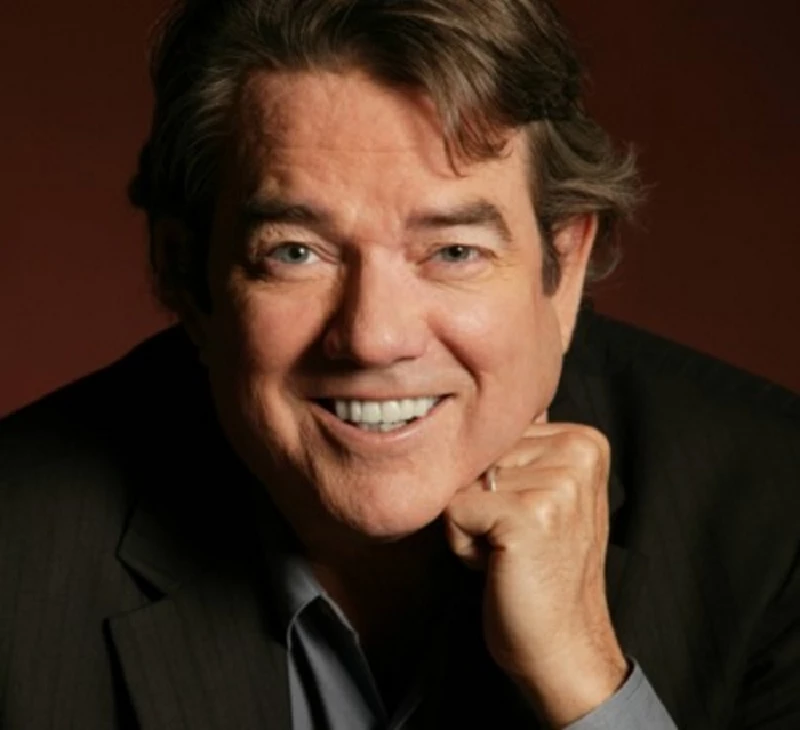
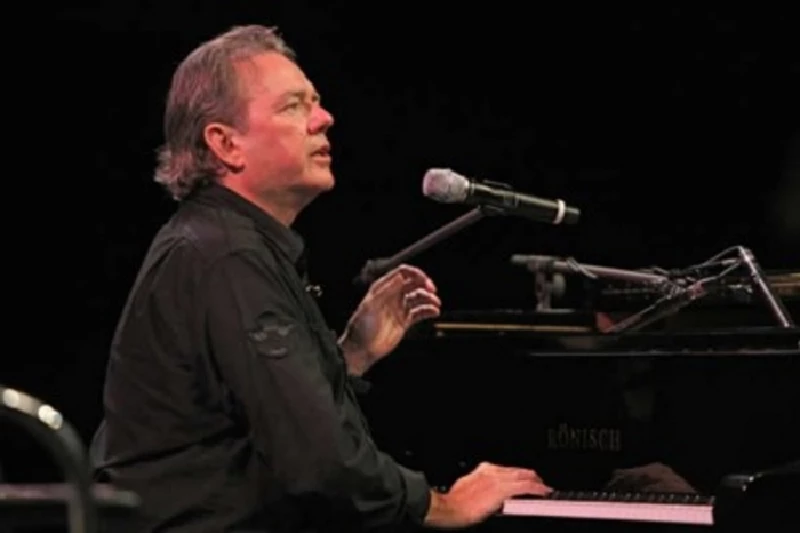
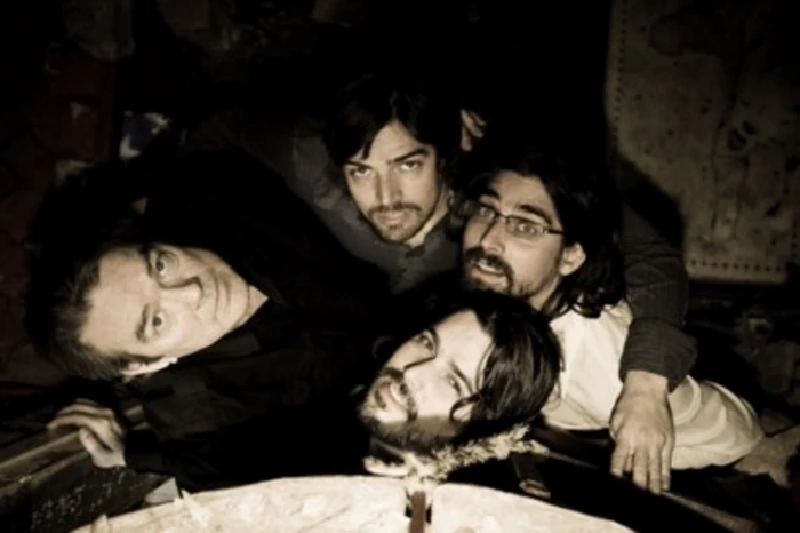
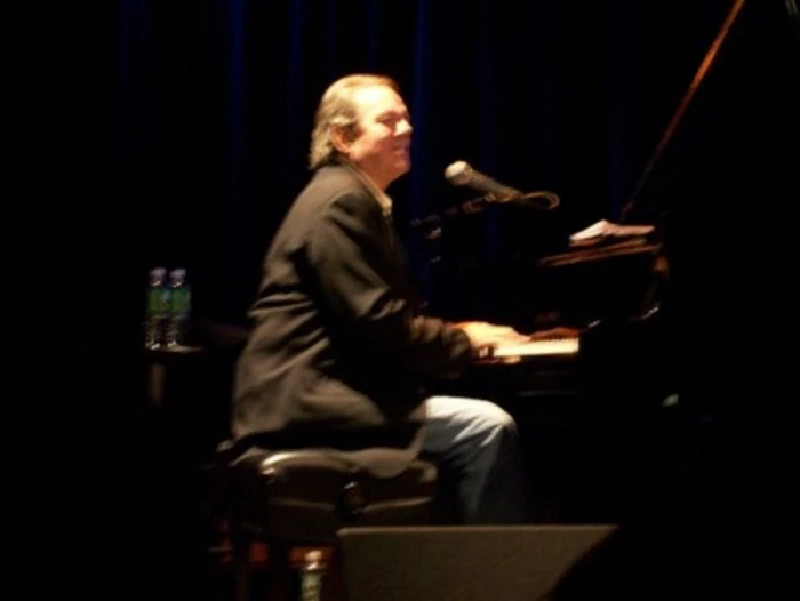
interviews |
|
Interview (2012) |
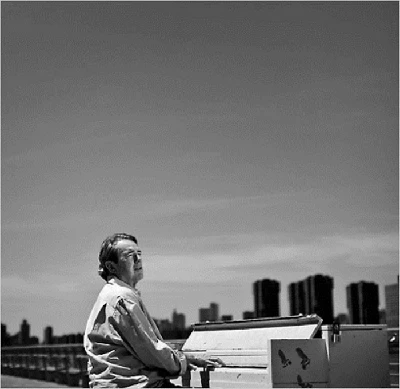
|
| Jimmy Webb speaks to Lisa Torem about songs such as 'Wichita Lineman', 'Galveston', 'The Highwayman' and 'MacArthur Park', his many musical collaborations and what makes good songwriting |
live reviews |
|
(With support from Ashley Campbell and Thor Jenson), Cadogan Hall, London. 27/5/2022 |
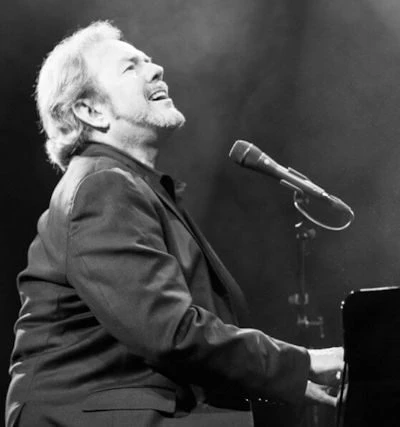
|
| Dastardly watches a captivating performance by Jimmy Webb proving he’s as skilled a raconteur as he is songsmith. |
| Old Town School, Chicago, 20/1/2012 |
| Queens Hall, Edinburgh, 6/11/2009 |
features |
|
Raging Pages (2022) |
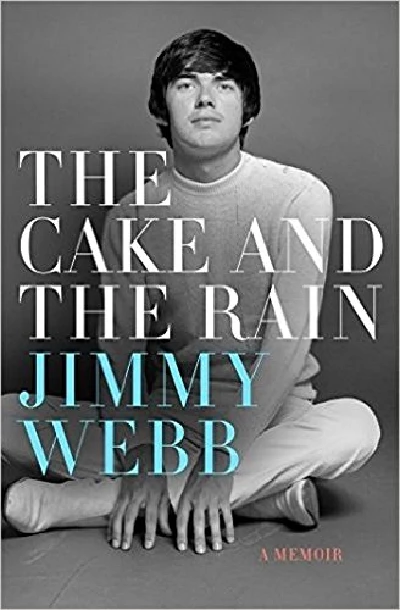
|
| In her ‘Raging Pages’ book column Lisa Torem examines Jimmy Webb’s 2017 memoir ‘The Cake and the Rain'. |
reviews |
|
Cottonwood Farm (2009) |
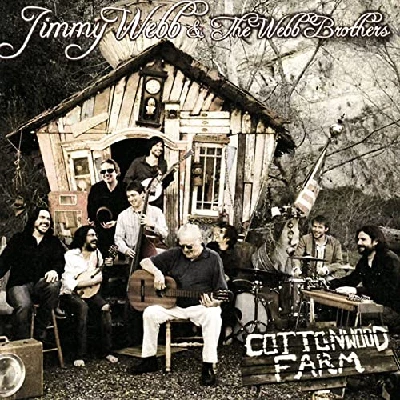
|
| Fabulous and inpsirational album which finds much legendary American singer-songwriter Jimmy Webb, collaborating with his four sons, the Webb Brothers, and also Bob Webb, his father |
most viewed articles
current edition
Spear Of Destiny - InterviewRobert Forster - Interview
Fiona Hutchings - Interview
When Rivers Meet - Waterfront, Norwich, 29/5/2025
Carl Ewens - David Bowie 1964 to 1982 On Track: Every Album, Every Song
Brian Wilson - Ten Songs That Made Me Love...
Chris Wade - Interview
Pistol Daisys - Waterfront, Norwich, 29/5/2025
Credits - ARC, Liverpool, 17/5.2025
Nils Petter Molvaer - El Molino, Barcelona, 24/4/2025
previous editions
Heavenly - P.U.N.K. Girl EPBoomtown Rats - Ten Songs That Made Me Love....
Barrie Barlow - Interview
Manic Street Preachers - (Gig of a Lifetime) Millennium Stadium, Cardiff, December 1999
Oasis - Oasis, Earl's Court, London, 1995
Dwina Gibb - Interview
Pixies - Ten Songs That Made Me Love...
David Paton - Magic: The David Paton Story
Chuck Prophet - Ten Songs That Made Me Love...
Sound - Interview with Bi Marshall Part 1
most viewed reviews
current edition
Peter Doolan - I Am a Tree Rooted to the Spot and a Snake Moves Around Me,in a CircleGarbage - Let All That We Imagine Be The Light
Vinny Peculiar - Things Too Long Left Unsaid
Little Simz - Lotus
John McKay - Sixes and #Sevens
Suzanne Vega - Flying With Angels
HAIM - I Quit
Morcheeba - Escape The Chaos
Vultures - Liz Kershaw Session 16.06.88
Billy Nomates - Metalhorse
Pennyblackmusic Regular Contributors
Adrian Janes
Amanda J. Window
Andrew Twambley
Anthony Dhanendran
Benjamin Howarth
Cila Warncke
Daniel Cressey
Darren Aston
Dastardly
Dave Goodwin
Denzil Watson
Dominic B. Simpson
Eoghan Lyng
Fiona Hutchings
Harry Sherriff
Helen Tipping
Jamie Rowland
John Clarkson
Julie Cruickshank
Kimberly Bright
Lisa Torem
Maarten Schiethart